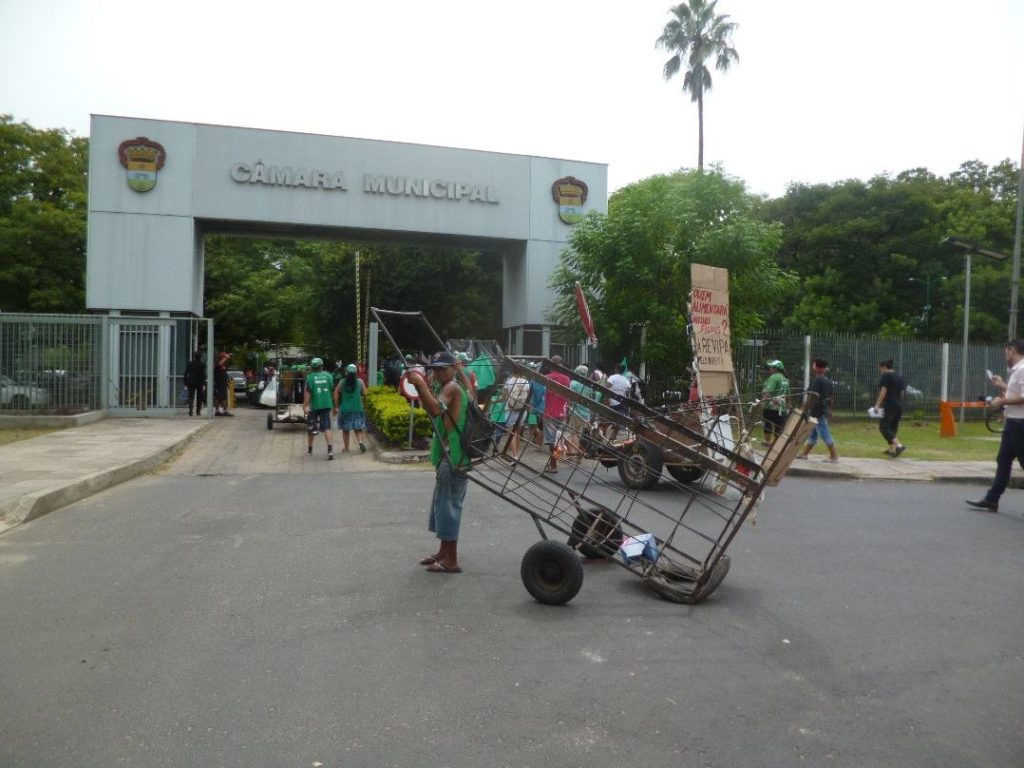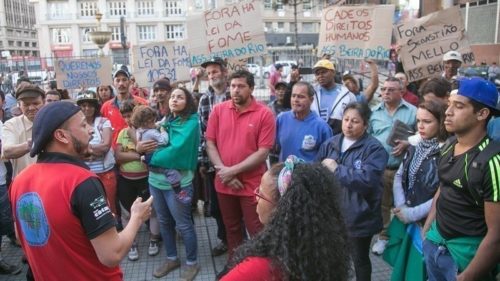5.5.1 Case study: we are all Porte Alegre
Course subject(s)
Module 5. Stakeholder Engagement
The next case study is about waste collection in Porto Alegre by waste pickers in the informal sector.
Porto Allegre is the largest city in the south of Brazil. Located at the junction of five rivers, it has become an important alluvial port as well as one of the major industrial and commercial cities of Brazil. Rich agriculture and livestock products such as soybeans, leather, canned food, meats, and rice are exported to several countries. Its population is about 1,5 million inhabitants.
Solid Waste collection in the city was mainly done by waste pickers in the informal sector. They used carts with human or animal traction. See the photo below.

In 2008, a municipal law established a deadline of eight years for banning waste pickers in the informal sector for reasons like the environment, safety, and the working conditions.
for the waste pickers, a new program was created aiming at the socioeconomic inclusion of these recyclable material collectors. In othher words: new jobs. This program is known as ‘Todos Somos Porto Alegre (We all are Porto Alegre)’
In 2016, the program was selected by the World Bank, UN Habitat, Bloomberg Foundation, and the World Fund for the Development of Cities to serve as a reference for poverty reduction policies in Latin America.
- This case study will describe how the collaborative governance and decision-making process was organized. And that it was not easy either.

You can find more information about the case in this report.

Smart and Sustainable Cities: New Ways of Digitalization & Governance by TU Delft OpenCourseWare is licensed under a Creative Commons Attribution-NonCommercial-ShareAlike 4.0 International License.
Based on a work at https://online-learning.tudelft.nl/courses/smart-and-sustainable-cities-new-ways-of-digitalization-and-governance/ /



